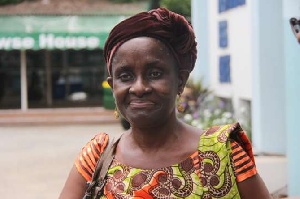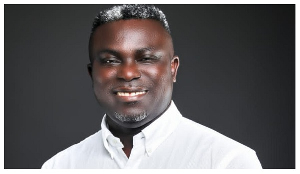Two weeks ago, when I read a report in this paper, that some pregnant women “are now taking skin bleaching pills in their quest to have light-skinned babies”, my immediate reaction was: ‘Unbelievable! What kind of madness is this?!’
I was even tempted to dismiss the news item as an instance of a fad practised by only a few, until I read on and came across a confirmation by the Food and Drugs Authority (FDA) that “the practice was in vogue”!
The distress of the doctor who raised the alarm, expressed in these words said it all: “this is where we have reached.”
Maybe the women know something that some of us don’t know, because I would even have said that it’s not possible to turn a naturally dark-skinned baby into a light-complexioned one in the womb, by taking pills in pregnancy.
Emmanuel Nkrumah of the Authority, told the reporter that “the FDA had received reports from some health practitioners but they were yet to come up with statistics.”
Mr Nkrumah added that it’s not only the babies in the womb, schoolchildren too are having their skin bleached. “You go to schools and you will find bleached kids. Some of the mothers deliberately use bleaching creams on their children.” He warned of the dangers, the threat to the health of the children because some of the diseases they are exposed to by the bleaching creams can cause diseases which have no cure, or are very expensive to treat.
Earlier, the doctor who sounded the alert to The Mirror, an obstetrician at the Healthlinks Clinic, Dr Clarence Addo-Yobo, warned that “swallowing bleaching pills posed health risks to the unborn baby. It is unfortunate, but this is where we have reached. You find children with all sorts of defects, some with short arms … The practice is terrible and has effects on the status of the new-born baby.”
The report in the paper’s issue of February 16, by Lydia Ezit, seems to have generated a lot of public discussion and condemnation so, hopefully, the message about the health risks will spread wide, even if not the Black Pride concerns.
But what does it say about people’s mindset, their pride in nationhood, their Africanness and cultural heritage, if people in a country embarking on 61 years of self-government, have such a sad outlook?
Obviously, the expectant women swallowing bleaching pills in the hope of giving birth to a light-complexioned baby, do so in the belief that looking Caucasian, looking like an obroni (white person) will enhance the looks of that child, improve their chances in life. What else could their reason be?
Incidentally, what are the implications for their marriage if, presumably, such a misguided woman is black, or dark-skinned, as is her husband or partner, and they give birth to a light-skinned baby? Clearly, they have no fear of being accused of adultery – unless of course the husband or partner has been consulted and is in agreement because he, too, is equally ill-advised.
It is also evident that such pills will not be cheap. And no doubt some of the women are among those who are loudest when it comes to complaints about the high cost of living!
Ironically, pregnant women everywhere are always cautioned to be very careful with what they eat or drink, for fear of harming their unborn child, and here they are swallowing pills to challenge nature. Yet, apparently, in their ignorance, they have no fears about the possible consequences for their baby!
I wonder what sort of personal bad experiences as an African in an African country, a dark-skinned Ghanaian, would make parents decide on this course of action, pills and bleaching creams for children.
It has to be seen as a serious indictment on all of us, our educational system, our politics, if there are people in our midst who believe that a light skin is so preferable that they will go this far.
So are our national decision-makers paying attention to this alarming development? Are our education authorities taking note? What about the religious bodies? What about our chiefs and queenmothers?
The unsettling phenomenon should be of serious concern to all of us, notably those in charge of promoting national identity and cultural awareness, national pride; and black pride. Something has gone wrong somewhere and we need to identify it and deal with it!
Perhaps it’s all part of the problem of illiteracy. Vast numbers of people in this country are illiterate or semi-literate and so the option of reading for enlightenment is not available to them.
Admittedly, there are others who are quite highly educated but unfortunately they, too, seem to have a very questionable attitude towards our culture, heritage and origins. So what are the values our society is teaching?
Recently, I wondered if I was being overly sensitive regarding a harmless-looking newspaper advert for a nappy rash ointment that featured two babies, one seemingly lighter skinned than the other one with dark skin. I found the image quite objectionable because the baby with light skin had placed a hand on the back of the other baby.
It was possibly meant to portray a friendly, even amusing somewhat precocious gesture, but it bothered me. I asked myself why the creator of the advert chose to have the light-skinned baby place a hand on the back of the darker one.
I saw it as a patronising gesture by the obroni baby. Was I being too sensitive? Maybe!
However, in this era of such misinformed thinking as pregnant women going to the extent of taking pills in the hope of having a baby with light skin one can’t be too careful!
All such images which seem to suggest in any way the superiority of the white skin over the black should be banned because they could have an insidious effect on some people.
Of course it’s education that could solve the problem: educating people to take pride in our heritage, our black skin, our Africanness. I see a role for the National Commission for Civic Education too, and they should be given more funding for their work.
The evocative statement by Dr Addo-Yobo provides much food for thought: “this is where we have reached.” My question is: as a nation is this where we want to be as we begin our 61st year of Independence?
Opinions of Saturday, 3 March 2018
Columnist: Ajoa Yeboah-Afari















